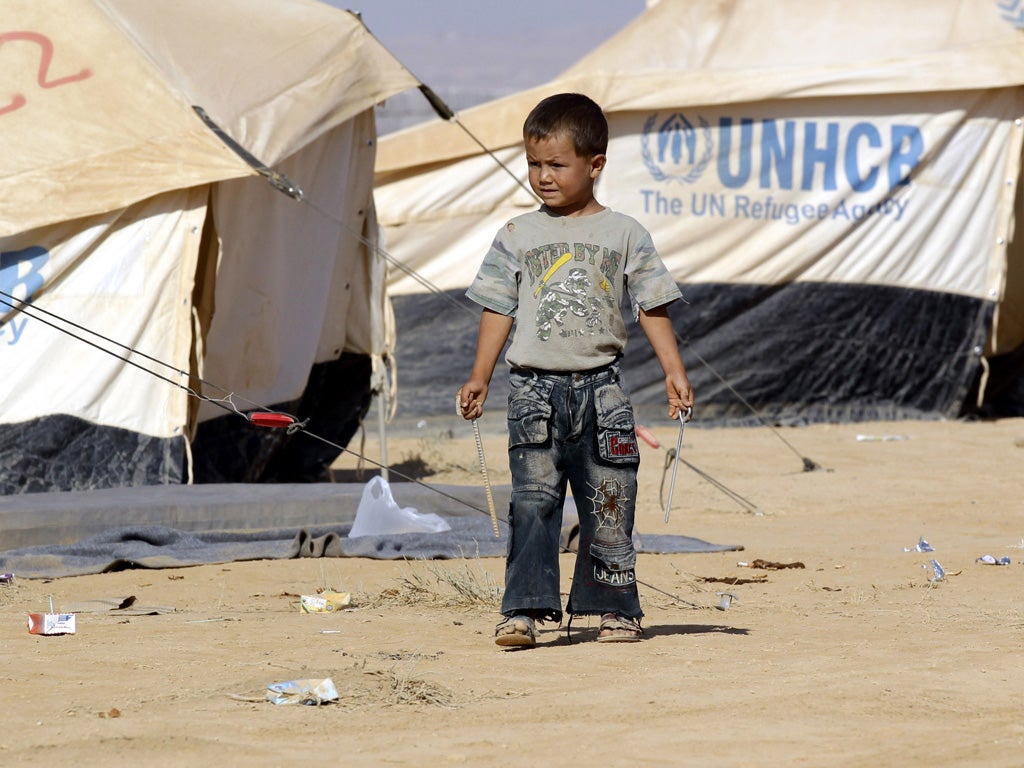Putin must see that Assad is doomed
The gravity of the humanitarian crisis must be matched by the donor response.

“We’re not just trying to save lives, we’re trying to save a generation.”
Those were words spoken to me yesterday by an aid worker at the Zaatari Refugee Camp on the Jordanian/Syrian border. It wasn’t an overstatement. The night before my visit, more than 400 women and children had braved bullets and bombs to run or crawl through the desert darkness for hours to reach the border and the safety of the camp. Zaatari is now home to 30,000 refugees – more than half of them children, a growing number arriving without a parent.
Failed by diplomacy, these children are being cared for by organisations including Unicef and Save the Children, which are doing extraordinary work. But conditions will worsen dramatically when, just two weeks from now, the freezing desert winter sets in.
Jordan deserves great credit for keeping its border open to refugees. With Lebanon, Iraq and Turkey, Jordan now hosts more than 350,000 Syrian refugees. By the end of the year, estimates suggest there could be as many as 700,000 refugees in Syria’s neighbouring countries. Trapped within Syria, 1.2 million people are also displaced and even more are in desperate need of aid. Although the suffering has spilled beyond the borders, the violence had until recently been contained within Syria.
That changed when Syrian troops fired into Turkey killing five female civilians. Turkey’s Foreign Minister, Ahmet Davutoglu, stressed to me in Istanbul this week that Turkey does not want to escalate the conflict into war, but the risk of miscalculation grows with every cross-border incident. This is no longer simply the brutal repression of a popular uprising, or even a Syrian Civil War – it is assuming the characteristics of a regional conflict.
Despite the abject failure of the past 18 months, the international community must restart efforts to end the suffering. Most urgently, the gravity of the humanitarian crisis must be matched by the scale of the donor response. A $500m UN appeal remains only 30 per cent funded. A regional diplomatic response involving the Saudis, Iranians, Turks and Egyptians has come to nothing. Efforts should now focus on uniting the divided Syrian opposition – the only basis for establishing a credible transition plan involving all components of Syrian society, including the Alawites.
Such a plan should form the basis of a new approach to the Russians who, with the Chinese, have blocked diplomatic efforts at the Security Council. Even President Putin must now doubt the long-term durability of Assad’s rule. The UK, the US and France should re-start direct dialogue with Moscow. The Security Council split along Cold War lines offers nothing to the women and children of the Zaatari Camp. As I saw this week, their suffering at Assad’s hand demands a renewed international effort.
Douglas Alexander MP is the Shadow Foreign Secretary
Join our commenting forum
Join thought-provoking conversations, follow other Independent readers and see their replies
Comments
Bookmark popover
Removed from bookmarks